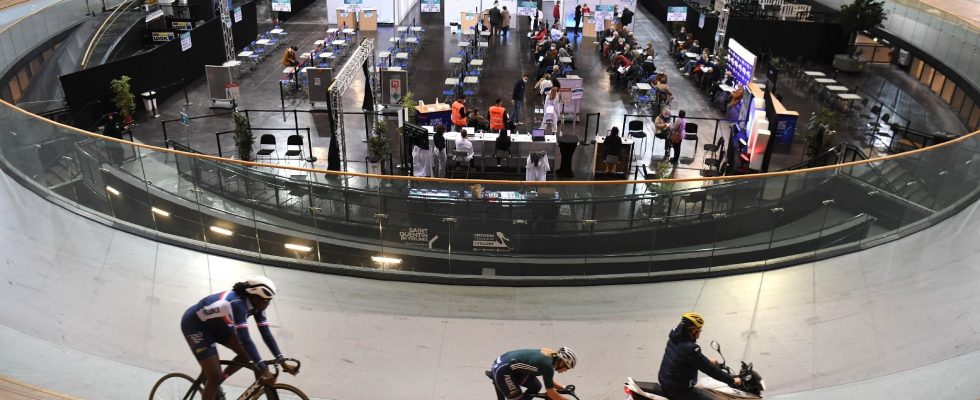The noise. That, melodious, of the machine crossing the air, regular breeze at each turn. That, shrill, of the starter marking the countdown, from ten to zero. The training of Corentin Ermenault, European pursuit champion in track cycling, is made up of these two cadenced sounds. They resonate in the 5,000 empty seats in the stands of the Saint-Quentin-en-Yvelines velodrome, where the track cycling events of the Olympic Games will take place, from August 5 to 11, 2024. The athlete is preparing for it, every day, during three-hour sprint sessions, always the same noises, always the same gestures. Like a pianist would rehearse his scales before a classical music recital.
“We are aiming for medals, more than in Tokyo,” warns Florian Rousseau, the director of the Olympic program of the French Cycling Federation (FFC), himself a three-time gold medalist at the Atlanta and Sydney Olympics. In Japan, the tricolors obtained two charms, average for their last three Olympics. Far from the Sydney record, when the French team had a total of six medals, including four gold, in 12 events.
Track cycling has the particularity of being a discipline that is both very predictable and full of uncertainties. It’s impossible to hope to shine without Spartan preparation, years of riding on the wooden track, great physical power, and the right position on the bike. And yet, in the end, the gap between triumph and failure comes down to a few thousandths of a second.
The “hunt for marginal gains”
So, the French team “hunts down marginal gains”, says Michel Collet, the president of the federation. Wind tunnel tests take place regularly at the Aerotechnical Institute in Saint-Cyr-l’Ecole (Yvelines). “We work on the position on the bike,” explains Florian Rousseau. Work on cycle aerodynamics is being carried out in parallel with Look, the manufacturer, a historic partner of the French. In order to allow athletes to devote themselves to their sport, the National Sports Agency issues some scholarships. The army also helps: it has hired several members of the French team, such as Mathilde Gros, one of the best female speed hopes.
The possibility of training every day at the velodrome, a superb setting built during the 2012 bid, and inaugurated in 2014, is an advantage. No guarantee of outperforming. At the world championships in Saint-Quentin-en-Yvelines, a sort of dress rehearsal for the Olympics in 2022, some French people were missed. The delegation still obtained two gold medals in Olympic disciplines, including that of Mathilde Gros.
